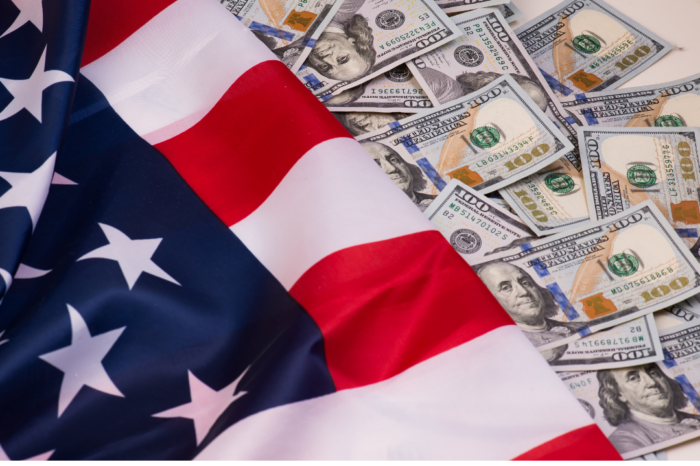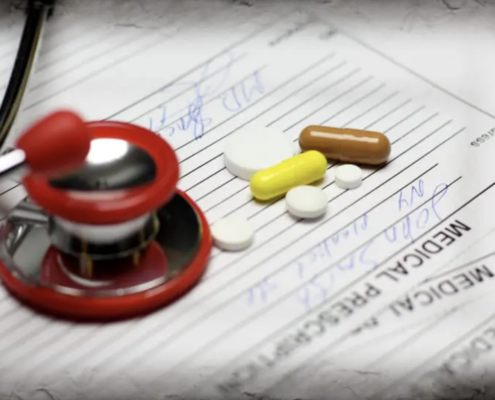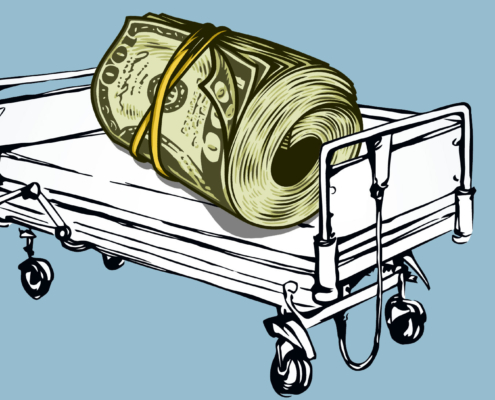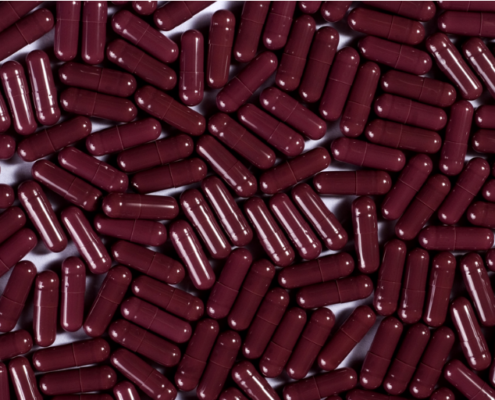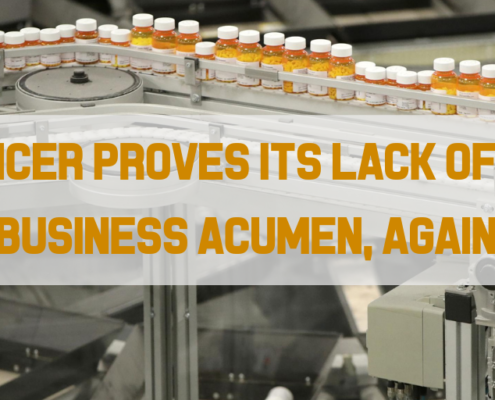A Modest Proposal to Raise Federal Revenue
This op-ed originally appeared in the Washington Examiner on September 25th, 2021
As a way to tackle drug prices, President Joe Biden recently announced that he supports the so-called “inflation rebate,” which would require drug companies to give the federal government any revenue from Medicare drug prices above the general rate of inflation. Senate Finance Committee Chairman Ron Wyden and House Speaker Nancy Pelosi have also publicly endorsed the inflation rebate.
Given the struggles of the Democrats in raising revenue for their $3.5 trillion spending lollapalooza, why limit the inflation rebate to prescription drugs? If this inflation rebate is such a clever idea, why not raise revenue by also taxing excessive price increases on everything purchased or subsidized by the government?
Let’s start with Wyden, an Oregon Democrat. According to Wells Fargo analysts, the price for a standard 1,000 board feet of lumber jumped from $347 to $1,645 between May 2020 and 2021. Why shouldn’t the Oregon timber industry be required to rebate some of the revenue it secured above the inflation rate?
After all, the federal government is going to end up subsidizing the purchase of a great deal of lumber with all this new federal infrastructure spending, and the federal government also funds the construction of lots of affordable housing. Let’s total up all federal spending or subsidies for lumber and then send the timber industry an invoice if its prices have exceeded inflation.
And what about beef? Between February 2020 and June 2021, beef and veal prices soared 13.2%. Arizona has a very robust beef industry. Where is the proposal from Sen. Mark Kelly, an Arizona Democrat, to require the beef industry to rebate the excess revenues they have secured above the inflation rate?
After all, the federal government buys lots of beef through the Supplemental Nutrition Assistance Program and other food assistance programs. The SNAP alone purchased $80 billion in food last year, and this does not include any beef that may have been purchased by the military or other agencies. The beef industry should be invoiced and rebate some of its profits to the taxpayer.
Let’s not forget the Republicans. Corn prices have risen 50% in 2021 as the price of a bushel of corn has doubled in the past year. Where is the proposal from Sen. Chuck Grassley of Iowa to enact a corn inflation rebate? Let’s make our expensive federal food assistance programs more affordable with an inflation rebate on any corn products purchased by these programs. Moreover, the federal government requires consumers to purchase gasoline containing corn ethanol, which climbed in price by 63% in 2021. Let’s help consumers with rising gas prices by requiring an inflation rebate on ethanol price increases, funds that could be used to lower federal gas taxes.
Finally, for his entire career, Sen. Bernie Sanders of Vermont has worked to keep U.S. dairy prices high. Dairy prices have not risen during the pandemic, probably because many schools were closed. But as they reopen, milk prices could surge. Sanders could prove his bona fides by enacting an inflation rebate on dairy products to preempt future price increases. After all, if milk prices start to soar in the future, we should protect those school lunch programs, which cost the taxpayers over $14 billion, from higher costs. The $80 billion SNAP program probably pays for lots of milk, and so does the Defense Department. So let’s send a rebate invoice to the dairy industry if prices rise too fast.
Think of the revenue that could be secured by the federal government if all essential commodities purchased or subsidized by the government were subject to an inflation rebate. Shouldn’t there have been an inflation rebate applied to the F-35 program? The federal government is the largest purchaser of goods and services in the world, so let’s apply the inflation rebate to everything the federal government purchases: software, gasoline, jet fuel, weapons, automobiles, concrete, equipment, and on and on.
Would any of these senators ever apply the inflation rebate to their home-state industries? Of course not. From an economic perspective, it is a ludicrous idea, as prices are determined by markets, supply and demand, and other complex factors. They would only weaken their home-state industries with such a law. But they are happy to selectively apply the farcical inflation rebate to the unpopular drug industry.
The hypocrisy inflation rate is surging in Washington, D.C.
William Smith, Ph.D., is a visiting fellow in life sciences at Pioneer Institute in Boston.

